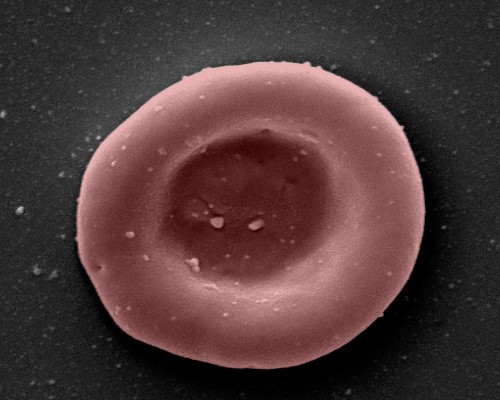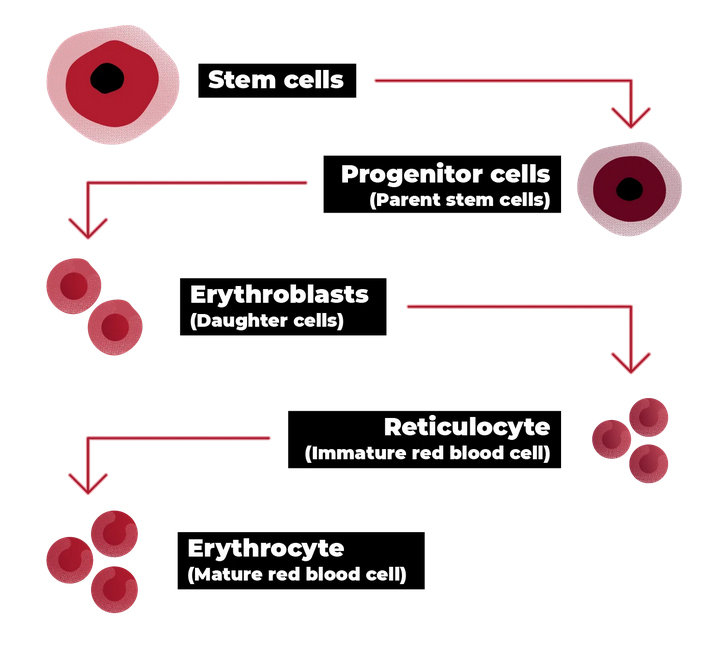
8th November 2022 Lab-grown blood cells transfused into people The world's first clinical trial of laboratory grown red blood cells transfused into humans has begun at the University of Bristol, UK. The manufactured blood cells were grown from stem cells from donors. The red cells were then transfused into volunteers, as part of an NHS clinical trial called RESTORE (REcovery and survival of STem cell Originated REd cells). If proved to be safe and effective, this could revolutionise treatments for people with blood disorders such as sickle cell and rare blood types. It can be difficult to find enough well-matched donated blood for some people with these disorders.
The trial is studying the lifespan of the lab grown cells compared with infusions of standard red blood cells from the same donor. The lab-grown blood cells are all fresh, so the trial team expect them to perform better than a similar transfusion of standard donated red cells, which contains cells of varying ages. Additionally, if manufactured cells last longer in the body, patients who regularly need blood may not need transfusions as often. That would reduce iron overload from frequent blood transfusions, which can lead to serious complications. So far, two people have been transfused with lab-grown red cells. They have been closely monitored and no side effects are reported. They are well and healthy. The amount being infused varies but is around 5-10mls – one to two teaspoons. Donors were recruited from the NHS Blood and Transplant donor base. They donated blood to the trial and stem cells were separated out. These stem cells were then grown to produce red blood cells in a laboratory at the NHS Advanced Therapies Unit in Bristol. The recipients of the blood were recruited from healthy members of the National Institute for Health and Care Research (NIHR) BioResource. A minimum of ten participants will receive two mini transfusions at least four months apart, one of standard donated red cells and one of the new lab grown red blood cells, to find out if the young cells made in the laboratory last longer than cells made in the body.
Further trials will be needed before clinical use, but this research marks a significant step in using lab grown red blood cells to improve treatment for patients with rare blood types or those with complex transfusion needs. "It's really fantastic that we are now able to grow enough red cells to medical grade to allow this trial to commence," said Dr Rebecca Cardigan, Head of Component Development NHS Blood and Transplant, and Affiliated Lecturer at the University of Cambridge. "We are really looking forward to seeing the results and whether they perform better than standard red cells." "This challenging and exciting trial is a huge stepping stone for manufacturing blood from stem cells," said Co-Chief Investigator Ashley Toye, Professor of Cell Biology at the University of Bristol, and Director of the NIHR Blood and Transplant Unit in red cell products. "This is the first-time lab grown blood from an allogeneic donor has been transfused and we are excited to see how well the cells perform at the end of the clinical trial."
Comments »
If you enjoyed this article, please consider sharing it:
|








